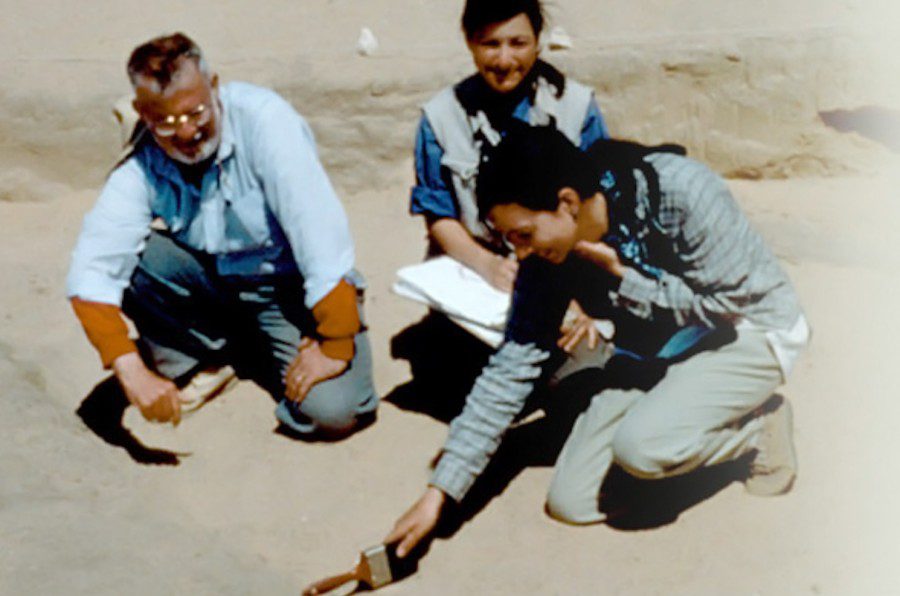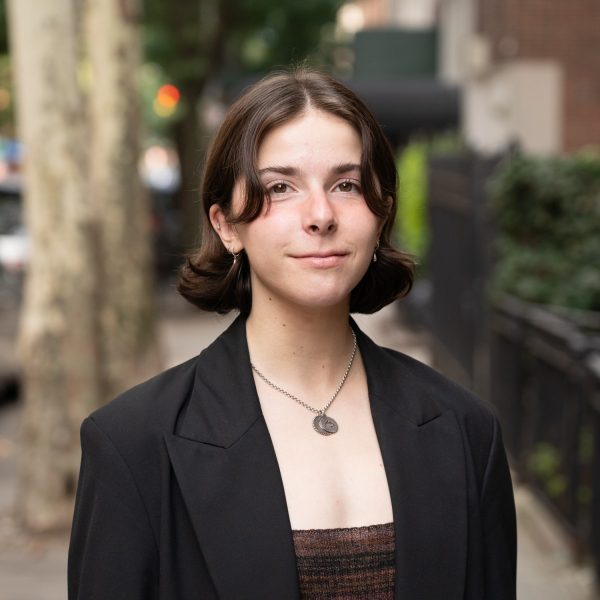David O’Connor, renowned Egyptologist and NYU professor, dies at 84
David O’Connor, who worked at NYU’s Institute of Fine Arts, was known for his excavation work and research at the ancient Egyptian city of Abydos, as well as his dedication to his students.
Courtesy: David O’Connor, a Lila Acheson Wallace Professor Emeritus of Ancient Egyptian Art, passed away on Oct. 1. (Courtesy of the Institute of Fine Arts at NYU)
October 12, 2022
David O’Connor, leading Egyptologist and Lila Acheson Wallace professor of ancient Egyptian art at NYU’s Institute of Fine Arts, died at 84 years old on Oct. 1. During his time at NYU, O’Connor conducted research in Egyptian art and archaeology, and mentored students working in the field.
Briana Jackson, who graduated from the Institute of Fine Arts with a doctorate in Egyptian art and archaeology in May 2021, was the last student to complete a doctoral degree under his guidance.
“He knew that he was a good scholar, but he didn’t see himself as this larger-than-life person that everybody else saw him as,” Jackson said. “He loved it when you disagreed with him and when you surprised him with something, or when you brought up something that he hadn’t thought about — he got so excited.”
From early on in his life, O’Connor was interested in the ancient world. Jackson said that as a child, O’Connor built a model of an ancient city in the backyard of his childhood home in Australia. Since the city he had modeled was burned down in real life, he set the model on fire. Shortly after, a neighbor had to help him fight the fire with a garden hose.
O’Connor worked as a professor of ancient Egyptian history and archaeology at the University of Pennsylvania from 1964 until 1995, and he was in charge of curating the Egyptian collection at the university’s Museum of Archaeology and Anthropology. He began working at NYU’s Institute of Fine Arts in 1995, and he was named a professor emeritus at the institute when he retired in 2017.
O’Connor received his bachelor’s degree from the University of Sydney in 1959, followed by a graduate degree in Egyptology from the University College London in 1962, and a doctorate from the University of Cambridge in 1969. From 1967 to 2017, O’Connor worked on excavations and research in the ancient Egyptian city of Abydos as the project director for the Abydos Archaeology project, which the Institute for Fine Arts sponsors.
He wrote and contributed to many books about ancient Egypt and other related topics. His most recent book, titled “Abydos: Egypt’s First Pharaohs and the Cult of Osiris,” focuses on the relationship between the city of Abydos and the Egyptian god of the deceased, Osiris.
Mary-Ann Pouls Wegner, a former doctoral student of O’Connor’s at the UPenn, said that he was very supportive of graduate students who wanted to do work in the field. She added that because of O’Connor’s support of her work, she was able to find a tenure track position in Egyptology after graduate school.
“He supported future generations of researchers, and now some of us are in positions where we are able to do the same,” Wegner said. “His legacy is also all of the people that he inspired and helped along the way, and a lot of us have gone on to try to emulate that in our own work.”
John Baines, a professor emeritus of Egyptology at the University of Oxford who knew O’Connor for more than 50 years, said that he helped his students grow in their careers, and that kept in touch with him after their studies. He added that one time O’Connor brought candy in his luggage to an excavation site in Egypt to share with his students.
Baines also said that O’Connor looked at Egyptology through an anthropological perspective and combined the studies of art, history and anthropology in the field — subjects which are most commonly studied separately.
“He had a considerable impact on me in that I was impressed by what he published, and the way he thought of new ways to do things and also that he was so much open to discussion and general conversation about the field,” he said. “He was somebody who really brought people together, and that was very valuable.”
Peter Brand, a professor in the history department at the University of Memphis and a fellow Egyptologist, said that O’Connor helped create a new generation of Egyptologists through the mentorship of his students at the UPenn and at NYU.
“He was very generous, not just in supporting his students as a mentor, but also giving them these wonderful opportunities to make their mark, by having something that he’s given them to do and discover,” Brand said. “Generosity was one of the hallmarks of him as a person, as well as a scholar and as a mentor to so many students.”
Jackson said that O’Connor met his wife, Gulbun, when she was pursuing a doctorate degree in anthropology. She added that though they studied different regions — David was interested in Egypt and Gulbun in the Solomon Islands — Gulbun joined him at an excavation of his in Abydos.
“They took care of each other,” Jackson said. “I know that they each had an office to themselves in their apartments, so they were always researching. I would sometimes overhear them talking on the phone with each other, and she always made him laugh.”
O’Connor died due to complications related to Parkinson’s Disease. He is survived by his wife, as well as his two daughters and his grandchildren.
Contact Carmo Moniz at [email protected].

























































































































































